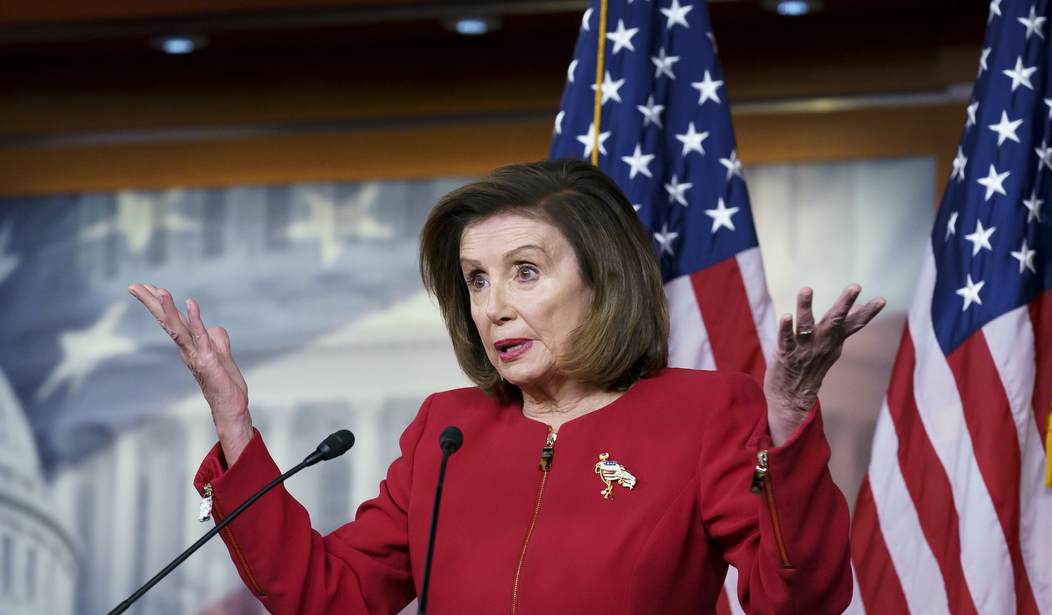Despite all the promises (and dresses!) about taxing the rich and the vows that the poor will not see a penny of tax increases, the Democrats are going full steam ahead with rolling out a pretty significant tax increase on the poorest 20 percent of Americans.
President Joe Biden has pledged not to raise taxes on anyone making less than $400k, but when you look at the data provided by the left-leaning Institute on Taxation and Economic Policy, their own data shows a bigger tax burden on the lowest income earners in America when it comes cigarette and tobacco tax increases. In the Democrats’ tax plan, there is a 1700% hike in the federal tobacco/nicotine tax that is supposed to raise about $100 billion in new revenue.
ITEP’s data shows that will be a bigger tax burden on the low-income earners far more than it would affect the higher income earners.

Detractors will likely tell you that is all but negated by the Child Tax Credit and Earned Income Tax Credit expansions. But those are seen once a year. The numbers are bigger and more noticeable then, but it’s a killer on a more regular basis for the tobacco taxes that will be paid at the register for the bottom 20 percent, especially in the midst of a potential recession that features high inflation, high gas prices, and regular supply chain failures and shortages.
But this isn’t just about the bottom 20 percent (or the rest of the population that earns under $400,000 per year). This will have a major impact on farmers, which is why Kentucky Governor Andy Beshear has already come out strongly against this. Consider also the tight race for Governor in Virginia, which is the largest tobacco-producing state in the country. It’s also the home of tobacco giant Altria, which will probably lay off a bunch of people if the tax hike goes through.
If that’s not enough for the Democrats, organized labor is coming out pretty hard against this particular tax hike, as well. There’s one group, the union representing workers at a unionized Swedish Match (not-big-tobacco-tobacco-
Something else to be considered here: Taxing nicotine doesn’t actually prevent harmful behavior, according to the Tax Foundation.
Taxing based on nicotine content would favor low-nicotine liquids and could encourage increased consumption in the quantity of liquid. For instance, a vapor pod that has a nicotine content of 3 percent and contains 1 ml of liquid would be taxed at $1.67 whereas a vapor pod that has a nicotine content of 5 percent and also contains 1 ml of liquid would be taxed at $2.78 even if there is no difference, or even a negative differential, in broader health effects of the two pods.
For those reasons, using nicotine as a proxy is not a desirable structure. Moreover, nicotine content alone does not determine nicotine absorption since absorption depends on delivery method. For instance, differences in electronic cigarette device design have significant implications for how much nicotine is absorbed by the consumer. In addition to variations among electronic cigarettes, other, and vastly distinct, nicotine products exist. However, due to the flawed definition of nicotine products in the bill, nicotine pouches, a relatively novel product which is consumed similarly to snus or dipping tobacco, will be taxed at very high rates. The high rate is a result of tax being levied on milligrams of nicotine since nicotine pouches contain more of it. Absorption through the mouth is slower than through the lungs, so these products require higher nicotine contents to satisfy consumers. Importantly, higher nicotine content does not translate to higher absorption.
What’s strange is that while smoking is routinely considered the most harmful way to consume tobacco, as the Tax Foundation points out, but it is the least-impacted by the tax hikes proposed by the Democrats. It’s almost as if they are trying to maximize the harm of cigarettes and tobacco products.
Taxing as a means of influencing behavior is not a successful strategy, and it renders the promise not to raise taxes on those earning under $400,000 a year a lie. The Democrats are so hell-bent on raising taxes before a potential loss in 2022 that they seem to be ignoring many factors within their own base that could negatively impact their electoral chances, all for the sake of raising more money for government – money that won’t even come close to making up what will be spent by their own legislation.












Join the conversation as a VIP Member